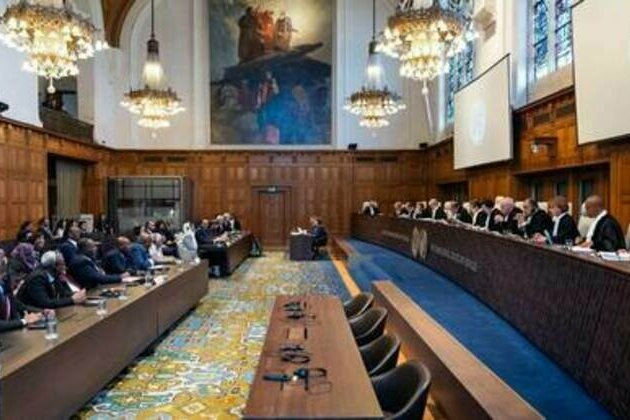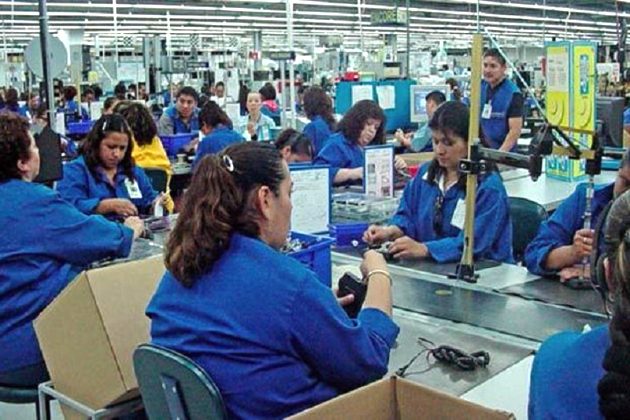Hustler literature sheds light on the world of internet fraud in Nigeria
The Conversation
05 Aug 2021, 00:13 GMT+10

Hustler narratives have emerged as a genre in world literature since the mid 1960s. It is an expansive genre, but deals broadly with the shortcomings of any given political economy as seen from the perspective of characters who position themselves as both victims and villains.
There have been groundbreaking hustler narratives from the US - like The Autobiography of Malcolm X (1965) written by Malcolm X and Alex Haley, and Donald Goines's Dopefiend (1971). In recent times, critics have described the work of African American writers in this field as a type of crime fiction. They carry the expressions of people's response to inner city problems such as de-industrialisation and police repression. The books represent individuals who operate outside the bounds of what American society might consider acceptable, just to survive.
Nigeria has made its own contribution to this field with its stories of political and religious hustle, sex worker narratives and many others about roadside hawkers, destitution, petty theft, and internet fraud. Notable examples include Akachi Adimora-Ezeigbo's Trafficked (2008) and Igoni Barrett's Blackass (2016). Other African entries include South African novelist Niq Mhlongo's Dog Eat Dog (2004) and Congolese author Alain Mabanckou's Black Moses (2017).
African hustler narratives represent the way people survive at the margins of postcolonial African economies. A distinct kind of African hustler narrative is the Nigerian e-fraud story, portraying characters who engage in cybercrime trying to make scam e-mail recipients part with their money - locally called "Yahoo Boys". The narratives show how people attempt to overcome geographic and economic disadvantages by creating alternative networks.
In a recent paper, I analysed some of these e-fraud novels - and one in particular, I Do Not Come To You By Chance by Adaobi Tricia Nwaubani - to show that they fit the literary canon of hustler novels and to find out what they have to say as a critique of the Nigerian state and its economy.
Between Afropolitans and hustlers
In my study I looked at Nigerian hustler narratives in relation to another common trend in African literature today: Afropolitanism.
Afropolitanism describes the experience of African subjects who attain the status of global citizenship. They do this by connecting to other non-African expressions of identity, community and sense of belonging.
Both hustler and Afropolitan narratives highlight the possibility of migration as a way to move socially. But whereas the privileged Afropolitan has a real chance of migration, the African hustler can only access it through a backdoor channel.
For example, In Chimamanda Ngozi Adichie's Americanah, Ifemelu's migration to the US is through a legally documented process. In contrast, the female hustlers in Chika Unigwe's On Black Sisters' Street pay a pimp to smuggle them from Lagos to Antwerp.
However, instead of physical migration, the hustlers (e-scammers) in Nwaubani's I Do Not Come to You by Chance resist poor economic conditions by creating an alternate digital universe. This they navigate by e-mail, for access to global locations of capital.
Nigerian hustler narratives establish e-fraud practice as an alternative economy and show how and why such economies emerge. They can also be a potent critique of young Nigerians' exclusion from the postcolonial economy.
I Do Not Come to You by Chance
The protagonist of Nwaubani's book, Kingsley, turns to e-fraud as a way out of poverty.
After independence in 1960, Nigeria continued to adopt the colonial model of an extractive economy, with its dependence on crude oil. Following the fall in global oil prices in the 1980s, Nigeria adopted a neoliberal economic policy called the Structural Adjustment Programme. But this failed to improve the lives of ordinary citizens and encouraged them to engage in capitalist pursuits.
Read more: Meet the 'Yahoo boys' - Nigeria's undergraduate conmen
Kingsley yearns to perform the traditional duties of a family's opara (firstborn son), which include taking care of his siblings and widowed mother. He applies for work at Nigerian oil companies but none employs him. So he joins his uncle, Cash Daddy, in the informal economy of online fraud. He declares:
E-fraud and the Nigerian state
But in embracing e-fraud as an alternative to his economic exclusion, Kingsley recreates the same exploitative economic landscape that he seeks to avoid.
In one of his scam letters, he exploits the decadent image of Nigeria's political economy and positions himself within it as a victim. He pretends to be the widow of former Nigerian head of state, General Sani Abacha, describing the persecution of the widow's household following his death:
What Kingsley has done above is to weave his personal experience of economic deprivation into a scam e-mail. Terms like "hopelessness" and "psychological torture" serve to appeal to the scam target's pity and earn their trust. But they simultaneously hold true about Nigeria's economic uncertainties and Kingsley's economic vulnerability. In this way, readers are introduced to the degenerate world of Nigeria's postcolonial economy, one that emasculates the postcolonial subject.
In another scam e-mail he writes:
Kingsley's class-climbing manoeuvres are therefore a by-product of a failing Nigerian economic system in which a parasitic state exploits the masses. It does so by privatising government assets and converting the common wealth to its advantage, excluding most citizens.
Kingsley's story forms a critique of the Nigerian economic culture in which he is allowed first to starve and then to prosper.
Author: Daniel Chukwuemeka - PhD Candidate in African Postcolonial Writing, University of Bristol 
 Share
Share
 Tweet
Tweet
 Share
Share
 Flip
Flip
 Email
Email
Watch latest videos
Subscribe and Follow
Get a daily dose of Madagascar Sun news through our daily email, its complimentary and keeps you fully up to date with world and business news as well.
News RELEASES
Publish news of your business, community or sports group, personnel appointments, major event and more by submitting a news release to Madagascar Sun.
More InformationAfrica
SectionEU gas prices hit record high last year Eurostat
In July-December, households paid more than during the 2022 energy crisis, official data suggests Households in the EU paid the highest...
Brazil and Russia could play soccer friendly media
The two countries may face each other later this year, Brazilian media have reported, citing the national football confederation ...
AD Ports Group, Burjeel Holdings partner to optimise healthcare logistics in Africa
ABU DHABI, 6th May, 2025 (WAM) -- AD Ports Group and Burjeel Holdings have signed a Memorandum of Understanding (MoU) to explore creating...
'Racial laws' driving investors out of South Africa - party
The Democratic Alliance, a member of the coalition government, is challenging the legality of Pretoria's Employment Equity Act in court...
Racial laws driving investors out of South Africa party
The Democratic Alliance, a member of the coalition government, is challenging the legality of Pretorias Employment Equity Act in court...
UN court rejects genocide case against UAE
The ICJ says it lacks jurisdiction over Sudan's complaint about the Emirati government for its alleged role in the country's civil...
International
SectionPentagon backs army's right to repair its own weapons
WASHINGTON, D.C.: The U.S. Department of Defense wants to change its contracts so the Army can fix its own weapons instead of always...
Mexico plans to cut work week to 40 hours by 2030
MEXICO CITY, Mexico: Mexico is laying the groundwork to reduce its standard work week from 48 to 40 hours by 2030, Labor and Social...
HHS Secretary RFK Jr. plans overhaul of vaccine testing, report says
WASHINGTON, D.C.: U.S. Health and Human Services Secretary Robert F. Kennedy Jr. wants to change how vaccines are tested, according...
US House votes to block California’s zero-emission truck plan
WASHINGTON, D.C.: In a challenge to California's push for cleaner transportation, the U.S. House of Representatives voted this week...
Two measles cases confirmed in Cook County
CHICAGO, Illinois: The Chicago and Cook County health departments say that two people in Cook County have measles. These are the...
EPA to cancel 800 grants, including all for environmental justice
WASHINGTON, D.C.: The Trump administration through U.S. Environmental Protection Agency (EPA) is canceling nearly 800 grants, including...













